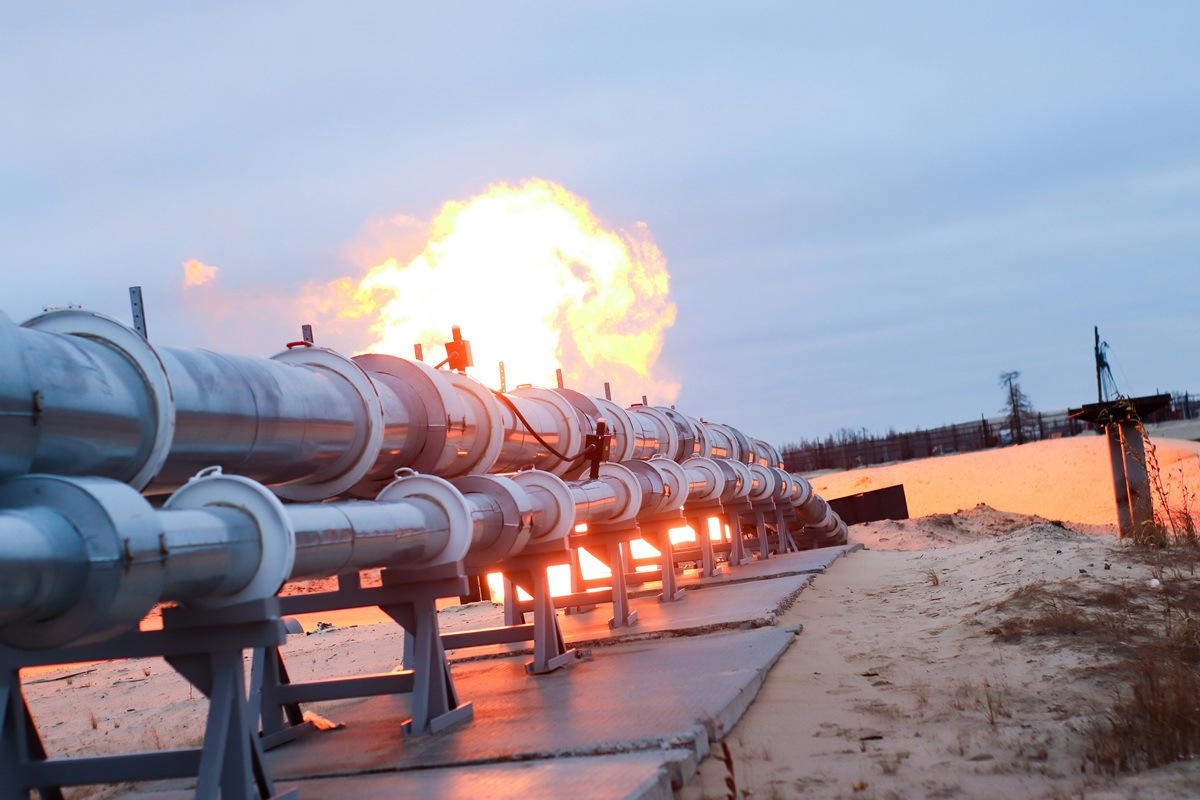The end of Russia's energy empire
The latest data from the International Energy Agency confirm the sharp decline in Moscow's revenues from gas and oil sales, due to the effect of heavy discounts imposed by China and India. According to economist Michael Bernstam, ‘the market is proving more effective than sanctions’.
Moscow (AsiaNews) - On 11 September, the International Energy Agency reported that Russia's earnings from oil and oil product exports fell by 0 million in August, for a total of .5 billion, due to reduced exports and large discounts demanded by importers, starting with China and India.
In Russia, the average price of oil has fallen to per barrel, and export revenues are at their lowest in five years, making it even more difficult to deal with the now evident economic crisis and demonstrating that ‘the market is more effective than sanctions,’ according to Russian-American economist Michael Bernstam of Stanford University.
In an article published recently by Bernstam, together with Steven Rosefielde, in the authoritative American financial magazine Barron's, he argues that “the end of Russia's economic and energy empire has now begun”, which he describes as “the agonising, enormous, frightening dinosaur, devouring everything as it breathes its last breaths”.
This phrase echoes an expression by the 18th-century Russian poet Vasily Tredyakovsky: “The monster is huge, spiteful, has a hundred mouths and barks”, adding the impression “that it is now dying”. The energy empire had been built up over several decades, but the war in Ukraine has exhausted all the “dinosaur's” energy.
Russian oil and natural gas dominated the European economy in a very significant way, with 37% of Russian oil imports to Europe, first from the USSR and then from Russia, together with 45% of gas, which allowed the Russians to dictate their own terms not only on prices but also in many areas of European political and social life. The United States, especially during Ronald Reagan's presidency, had long fought against this European dependence, which only ended in 2023, a year after the invasion of Ukraine.
Bernstam recalls some of the protagonists of the “construction of the empire”, such as Konstantin Bajbakov, who organised the Russian oil industry in the 1960s, Aleksey Kortunov, who devoted himself to the gas industry, which later gave rise to the giant Gazprom, and two politicians, Aleksey Kosygin, prime minister from 1964 to 1980, and Viktor Chernomyrdin, prime minister from 1992 to 1998 in Putin's Russia, the founder of Gazprom itself, but he assures us that “I could have mentioned at least 20, all of whom are now forgotten”.
The energy empire had already established itself during the Cold War, ensuring the USSR enormous influence over its “European enemies” and provoking a reaction from the United States.
Bernstam states that “the second Cold War began in the 2000s” and is now evident in the opposition between the two blocs of the global North and South, putting energy resources back into play. Putin has based his strategy on the belief that the West (including America) cannot completely do without Russian oil products, and that this is the underlying reason for Donald Trump's “friendly” attitude towards him.
The US buys enriched uranium, and Europeans continue to purchase products made from Russian gas, processed in China and India, such as jet fuel and diesel, with contracts ensuring a very strong market until 2026.
However, Putin's war seems to have awakened Europe, at least in this respect, making it realise the need to free itself from energy dependence, as Reagan's America dreamed of. Market mechanisms will increasingly be a decisive factor, with the Persian Gulf states seeking to defend their positions and the Russians risking the permanent loss of the only real weapon capable of subjugating even the most powerful enemies.
11/08/2017 20:05







.png)










